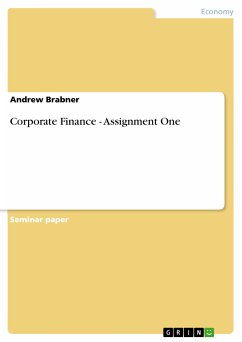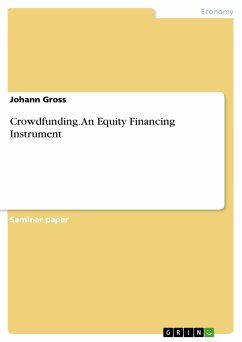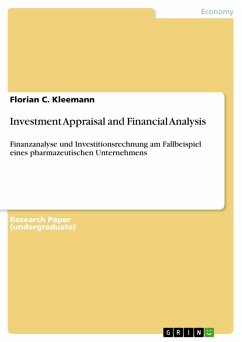Seminar paper from the year 2004 in the subject Business economics - Investment and Finance, grade: 1.0, Stralsund University of Applied Sciences, language: English, abstract: The topic of this essay is project finance. Although it is considered to be a relatively new method of finance, its roots go back to the late 1920's when it was invented to initially provide American wildcatters with longer - term production finance. During the 1930's and 1940's improved engineering techniques were developed, which improved to ability to forecast recovery of oil reserves. banks, which also employed some technical staff applied these techniques, and were thus able to give oil production loans in excess of three years. Or, in other words, they accepted the risk that revenues from oil production would enable the borrower to repay the loan only out of the cash generated by this project. The creditworthiness of the borrower was irrelevant. Nowadays, project finance is not only limited to the petroleum sector, although this sector and other natural resource industries still remain leading users of project finance. A significant part of the project finance market is accounted for by power and other private infrastructure projects. Another significant feature of project finance is, that project finance has nowadays nothing to do with capital constraints, for major international mining, energy or power projects are developed by some of the world's largest companies. Risk management aspects which speak in favour of using project finance are gaining importance. (Compare: Pollio, Page 87) Concerning the structure of this essay, it will start off by giving some basic definitions and characteristic features of project finance. This chapter will be followed by a description of possible applications of project finance. After that, stages of project finance will be outlined. As this essay mainly concentrates on risks and problems that can occur when investments are project financed the following chapter will deal with that. Besides, special problems concerning the Basel II accord will be outlined, and methods how to judge upon risks and minimize the project's risk exposure will be explained. In the last chapter, some examples of project financed investments will be outlined.
Dieser Download kann aus rechtlichen Gründen nur mit Rechnungsadresse in A, B, BG, CY, CZ, D, DK, EW, E, FIN, F, GR, HR, H, IRL, I, LT, L, LR, M, NL, PL, P, R, S, SLO, SK ausgeliefert werden.









